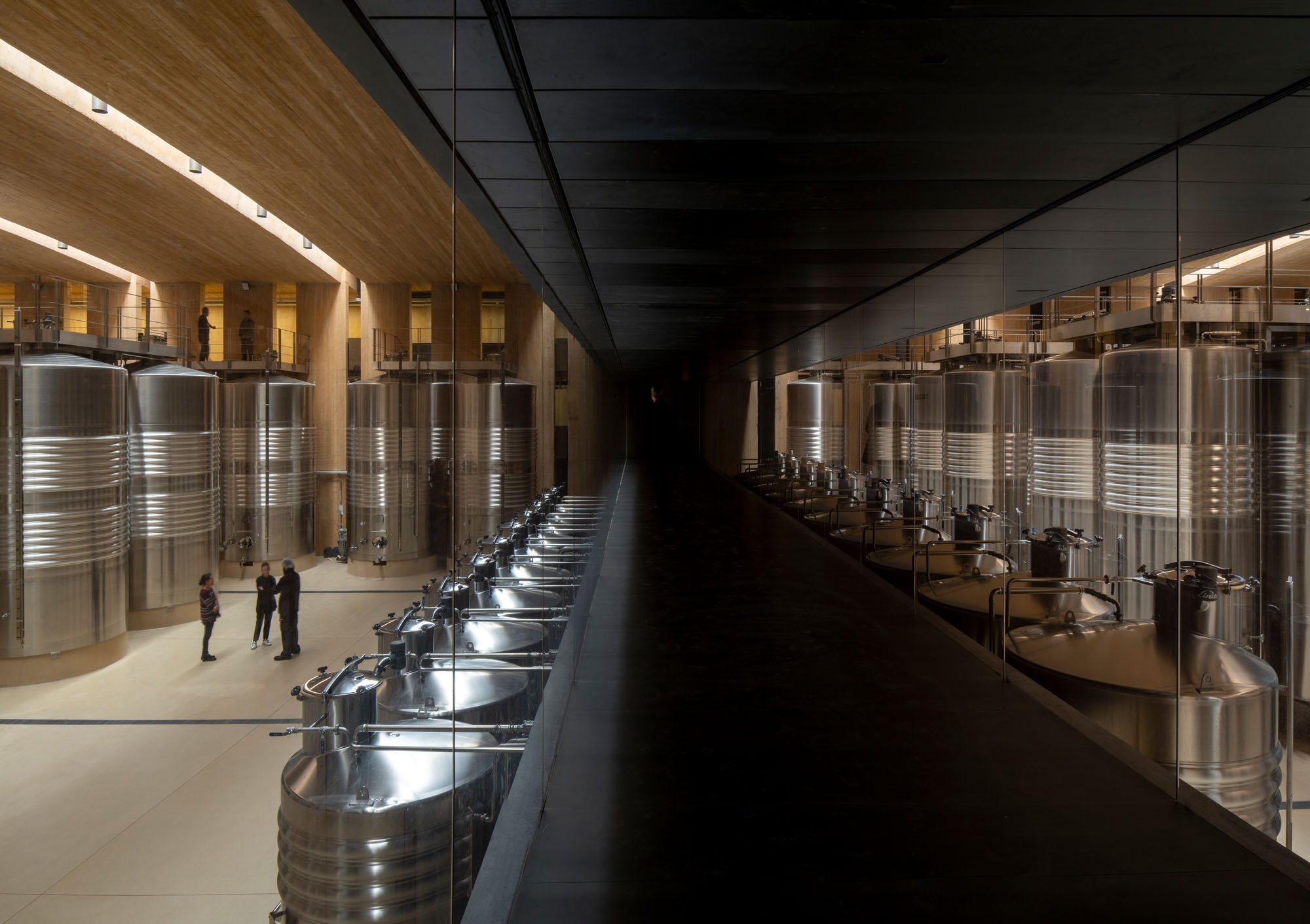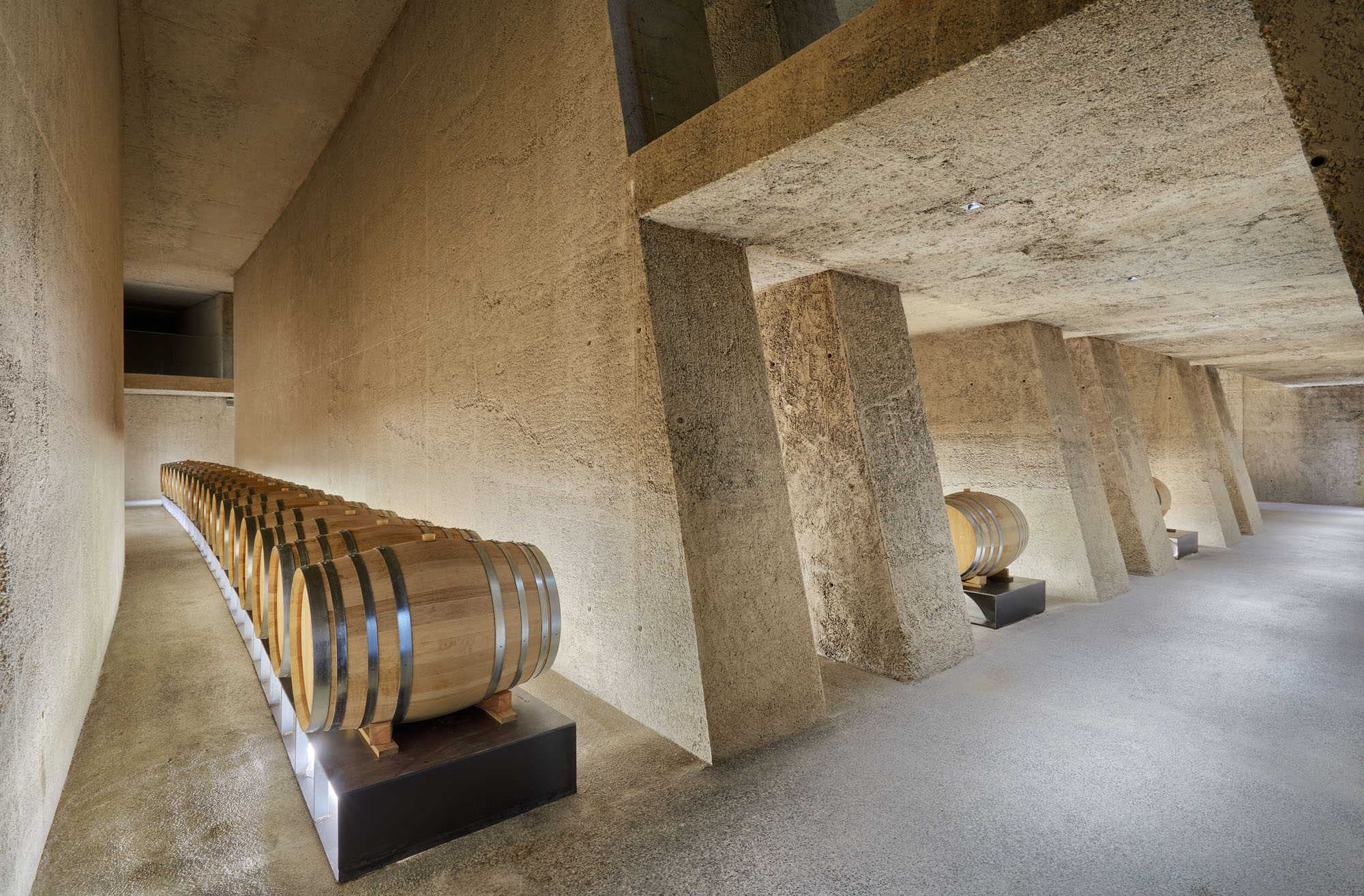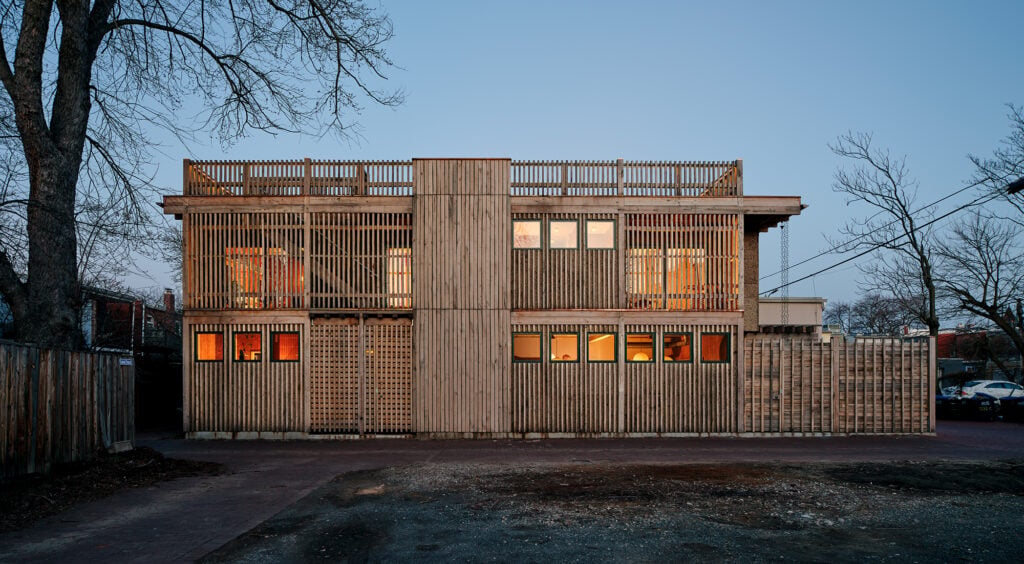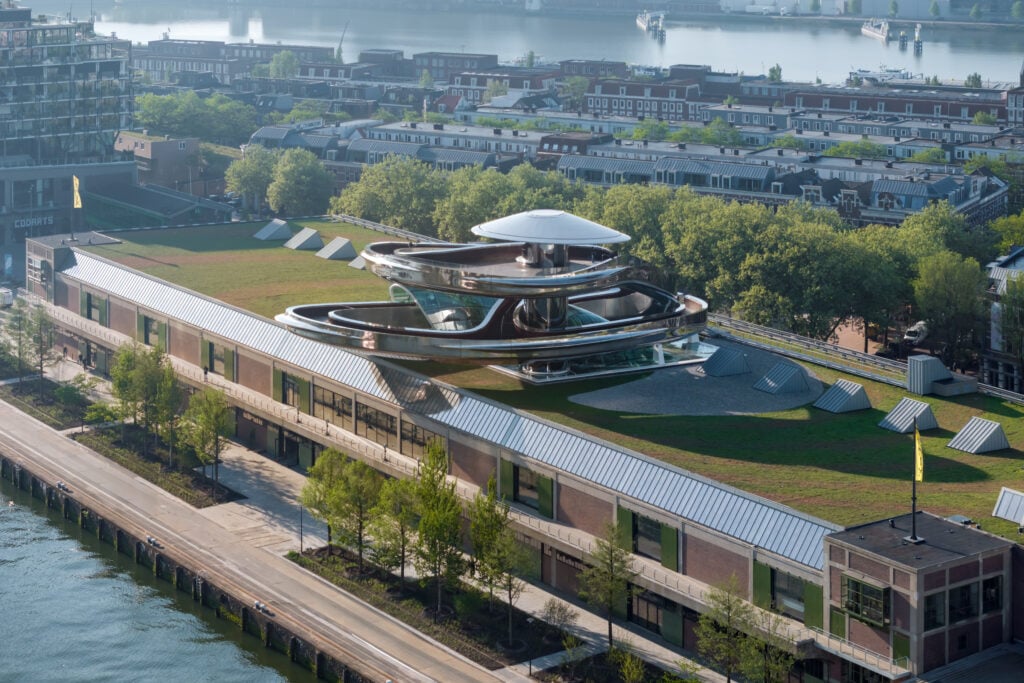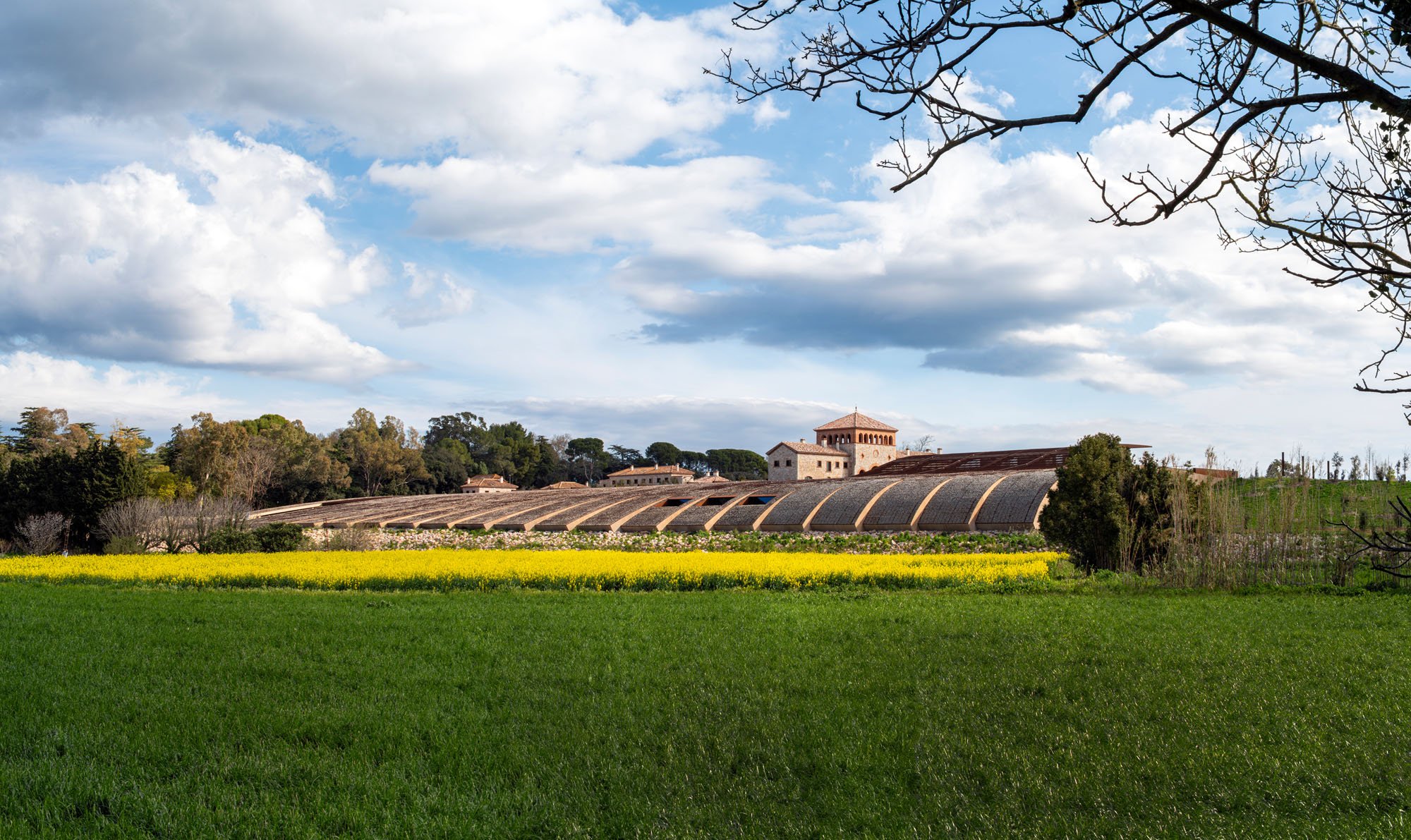
July 13, 2022
The First Winery in Europe to Receive LEED Gold Is a Subterranean Marvel
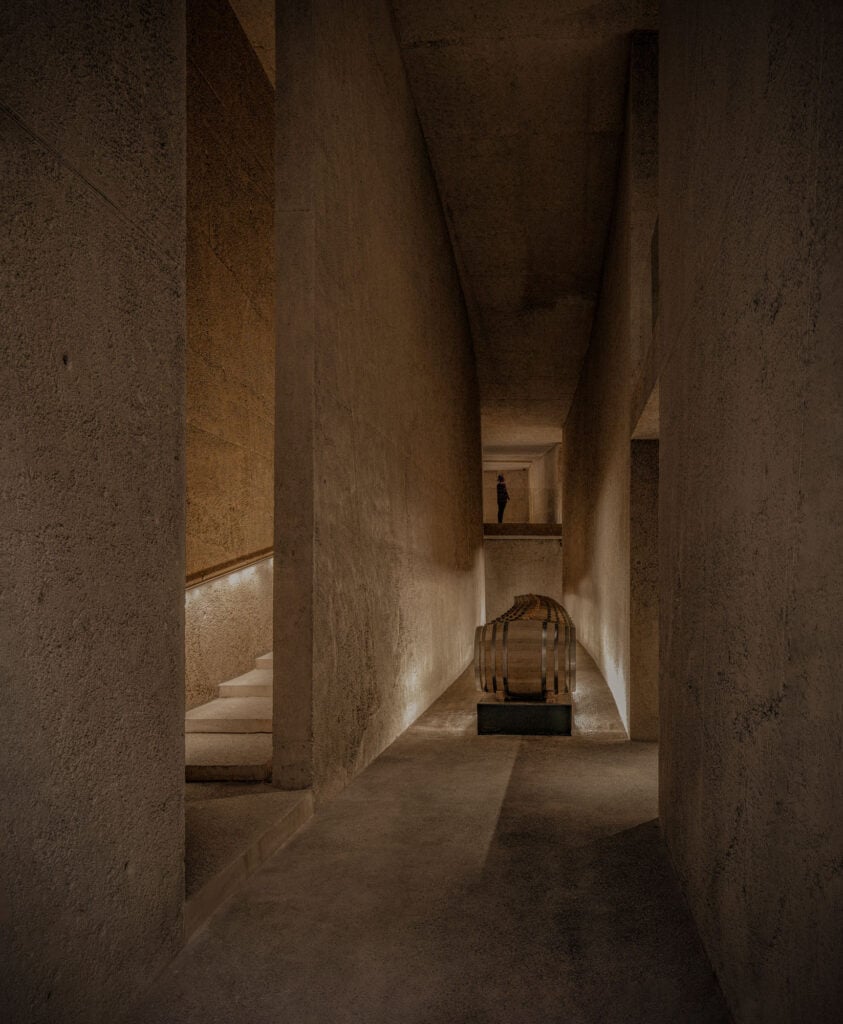
It annexes a historical part of the estate dating from 1935—a configuration of workers cottages and agricultural buildings that have been converted into a smart visitors’ center, a wine bar, and offices that support the wine experience they now offer.
The architecture studio RCR are also from Northern Catalonia, and their works, despite or perhaps because of, their avant-garde character, often effortlessly merge into the natural environment, transcending into the realm of landscape art. From the beginning RCR had were clear that Perelada’s new winery must be subterranean in nature.
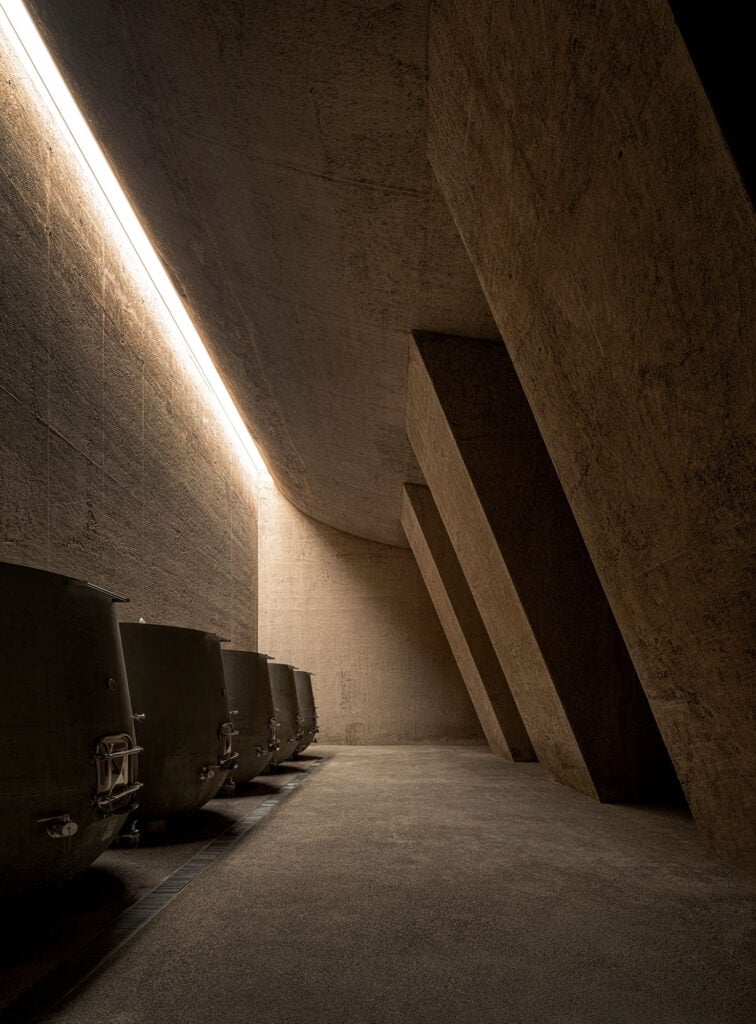
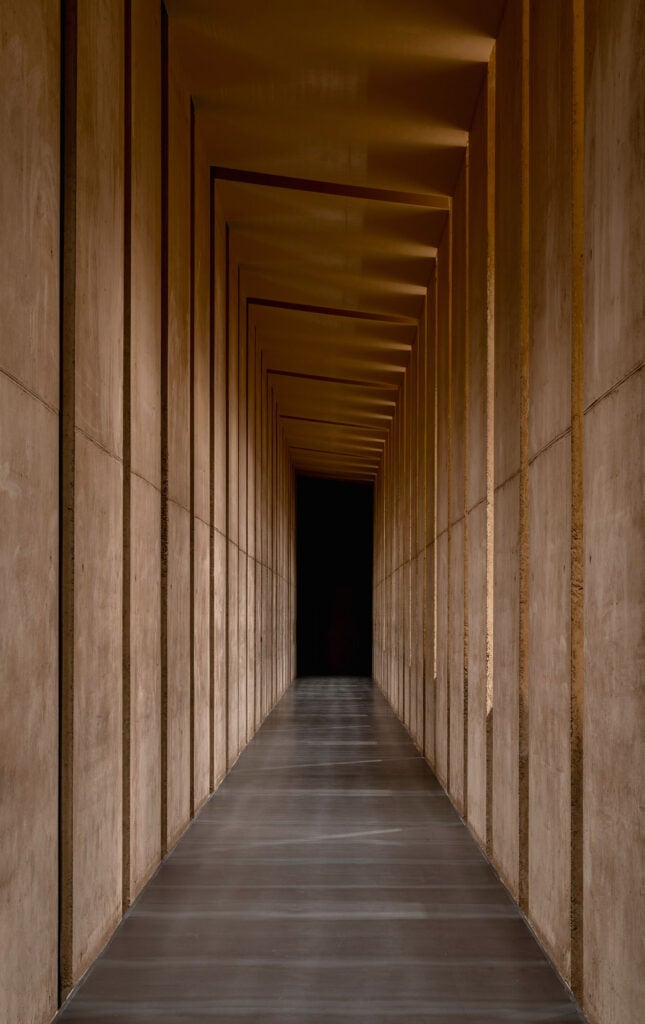
From the exterior, the bodega is barely perceptible. It’s gently curved, low-level roof is vegetated, except for an earth-colored weathering steel canopy that shelters a bay for the delivery of grapes during the harvest. Visitors descend from here; first into a labyrinth of enclosed hallways, each one projecting a multimedia presentation of describing each of Perelada’s estates, with the idea that they will come to better understanding of the terroir of the Empordá region.
This experience is a mere aperitivo for the main event, which is centered around viewing the facilities, from elevated platforms, vast and pillar-less chambers, in which the key functions of wine processing—crushing, fermentation and aging—take place. In the fermentation room, 188 gigantic stainless-steel vats guard the entire quantities of must produced from the company’s extensive vineyards, and the aging room is a seamless sea of pristine oak casks enclosed by softly textured concrete walls. The industrial nature of the structure is diminished with a sequence of timber partitions, natural lighting though perforation in the rooftop, and giant charcoal-colored swing doors that reverently usher you from one section to another.
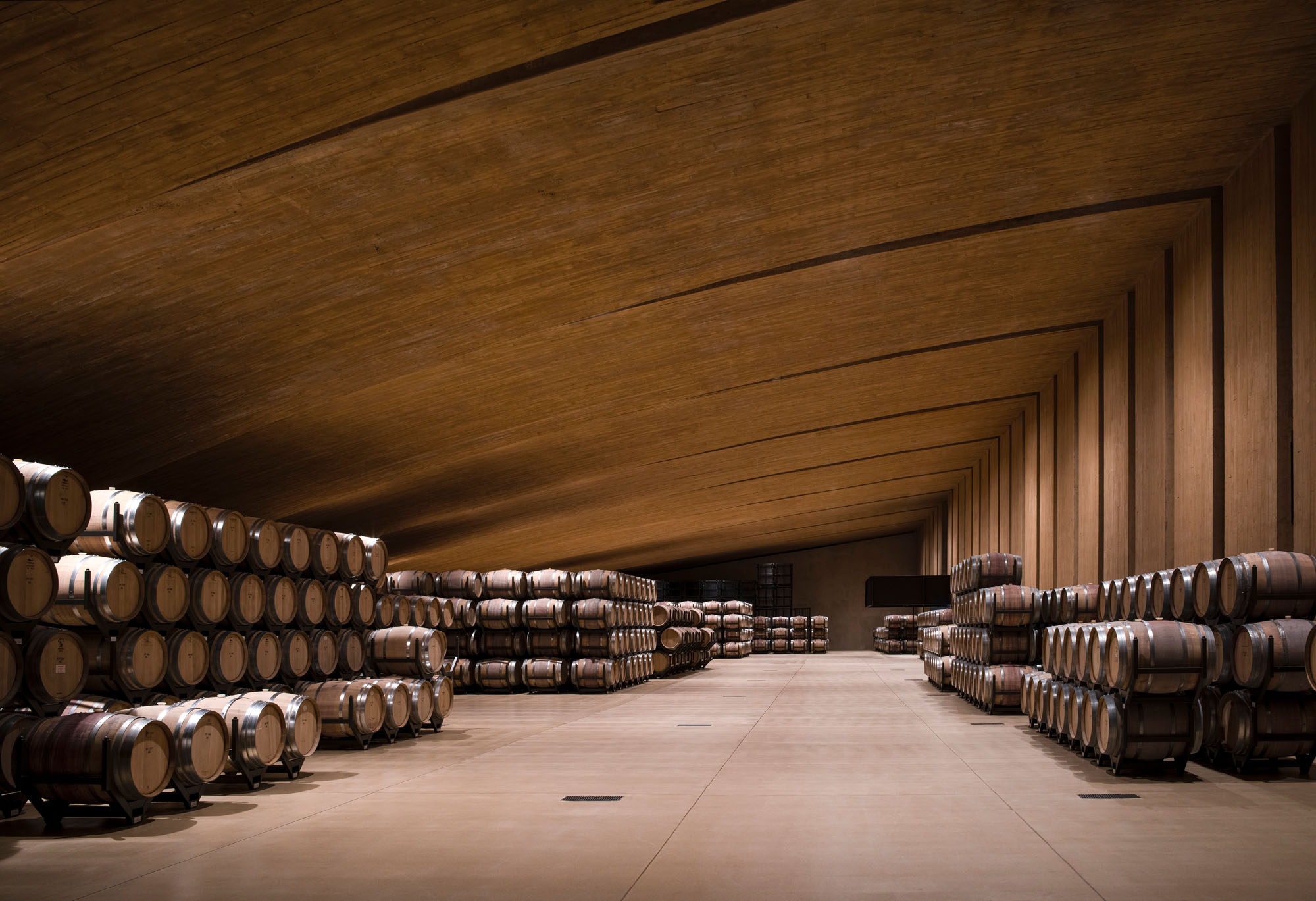
The work is the first winery in Europe to receive a LEED® Gold certification. Its core sustainable feature is a foundation of 538 geothermic energy wells sunk to depths of 24 to 60 feet that have reduced the energy required for heating and cooling water by 37 percent. Climatic insulation occurs naturally through the walls’ contact with the ground, and the two-level layout (with the upper level for grape intake) cuts down on the energy needed to move vast quantities of grapes and must.
Perelada hopes that the opening of their new winery will place Empordá on the international wine tourism map. Already known for its experimental and creative wines, with RCR’s daring design and concept the company has found its perfect paring.
Would you like to comment on this article? Send your thoughts to: [email protected]
Related
Profiles
BLDUS Brings a ‘Farm-to-Shelter’ Approach to American Design
The Washington D.C.–based firm BLDUS is imagining a new American vernacular through natural materials and thoughtful placemaking.
Projects
MAD Architects’ FENIX is the World’s First Art Museum Dedicated to Migration
Located in Rotterdam, FENIX is also the Beijing-based firm’s first European museum project.
Products
Discover the Winners of the METROPOLISLikes 2025 Awards
This year’s product releases at NeoCon and Design Days signal a transformation in interior design.



